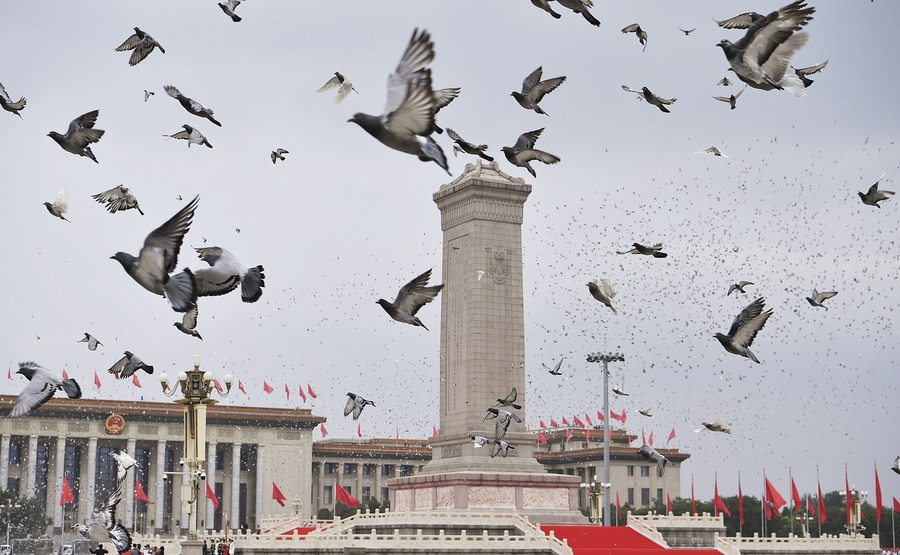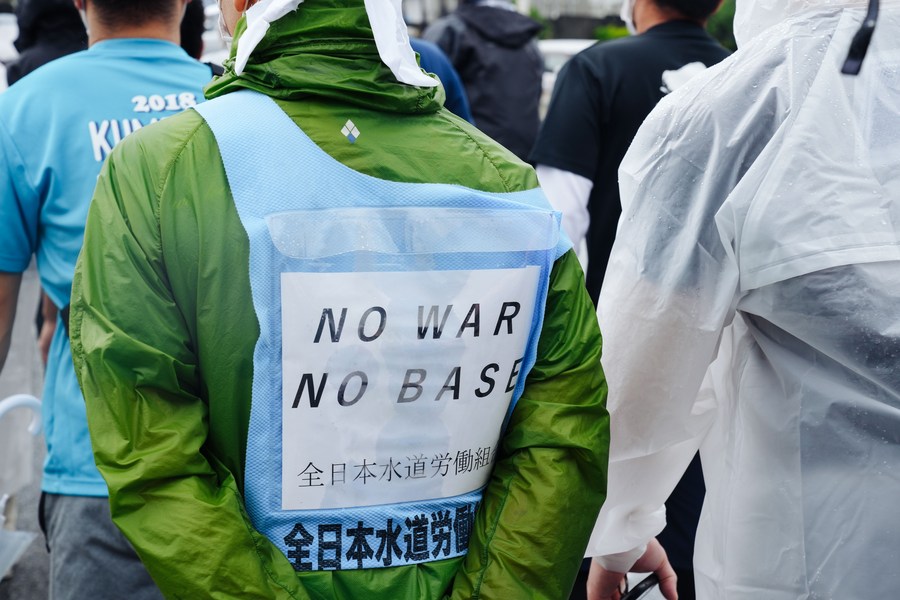China's newly-proposed security vision worthy of thought, respect, Syrian experts say

Doves are released to the sky at Tian'anmen Square in Beijing, capital of China, July 1, 2021. (Xinhua/Sun Fei)
Osama Danura, a Syrian political expert, regards China's vision of security as the real guarantor of world peace and stability, because it seeks cooperation and mutual respect instead of employing internal crises in other countries.
DAMASCUS, June 8 (Xinhua) -- The security vision recently proposed by China as part of the Global Security Initiative is worthy of thought and respect, while the U.S. unilateralism encourages "the production of wars around the world" under various pretexts, according to Syrian political experts.
Osama Danura, a political expert and former member of the Syrian government delegation to the Syria peace talks in Geneva, told Xinhua that the China-proposed vision of common, comprehensive, cooperative and sustainable security deserves to be thought and respected "at both the regional and international level."
In Danura's view, even a small crisis can have great repercussions for most countries, since the world is interconnected. It's impossible to achieve security in one certain place without realizing security in the rest of the world, said the expert.
Referring to U.S. policy in the region, Danura said that the United States is "a force that lives on producing wars around the world and uses various pretexts in this context, some of which are ideological and some are related to so-called 'spreading democracy,' which are well-known titles."
According to the expert, the United States pursues unilateralism and the country's primary goal is to seek its own hegemony with many military bases established worldwide.

People take part in a protest in Okinawa, Japan, May 14, 2022, asking to reduce the U.S. base-hosting burdens of the southernmost prefecture of Okinawa. (Xinhua/Zhang Xiaoyu)
Danura said that continued American supremacy requires provoking conflicts so that there will be U.S. military intervention based on the aforementioned pretexts and orders for American weapons. The United States has been playing a "destructive role" in the region, especially since 2011, he noted.
Danura regards China's vision of security as the real guarantor of world peace and stability, because it seeks cooperation and mutual respect instead of employing internal crises in other countries.
He also hoped that the security vision will help the world achieve "stability much greater than what exists today."
Meanwhile, Syrian political researcher Muhammad Omari pointed out that China's freshly-proposed security vision depends on means and mechanisms of cooperation, not on unilateral control of political decisions.
The American unilateralism has led to the outbreak of wars and invasions in many countries, as happened in the past, Omari stressed, adding that it left grave negative effects on Syria.
The U.S. illegal presence and its imposition of economic blockade hit the basic livelihood of the Syrian people, which created humanitarian crises represented by refugee crisis, the expert noted.

A U.S. military vehicle runs past the Tal Tamr area in the countryside of Hasakah province, northeastern Syria, on Nov. 14, 2019. (Str/Xinhua)
Omari said that the United States has been impeding the progress of reaching a political solution in Syria.
"The United States has been continuing until this moment in trying to rob it (the political solution) of the will of the Syrians, creating a state of chaos permanently, and trying to impose its dictates, whether constitutional, political, or otherwise," Omari told Xinhua.
He called for real activation of international organizations, such as the United Nations, and equal cooperation between states, which is "not monopolistic as the United States seeks," while stressing that the vision of common, comprehensive, cooperative and sustainable security "is the best to preserve the formula of international collective security."


